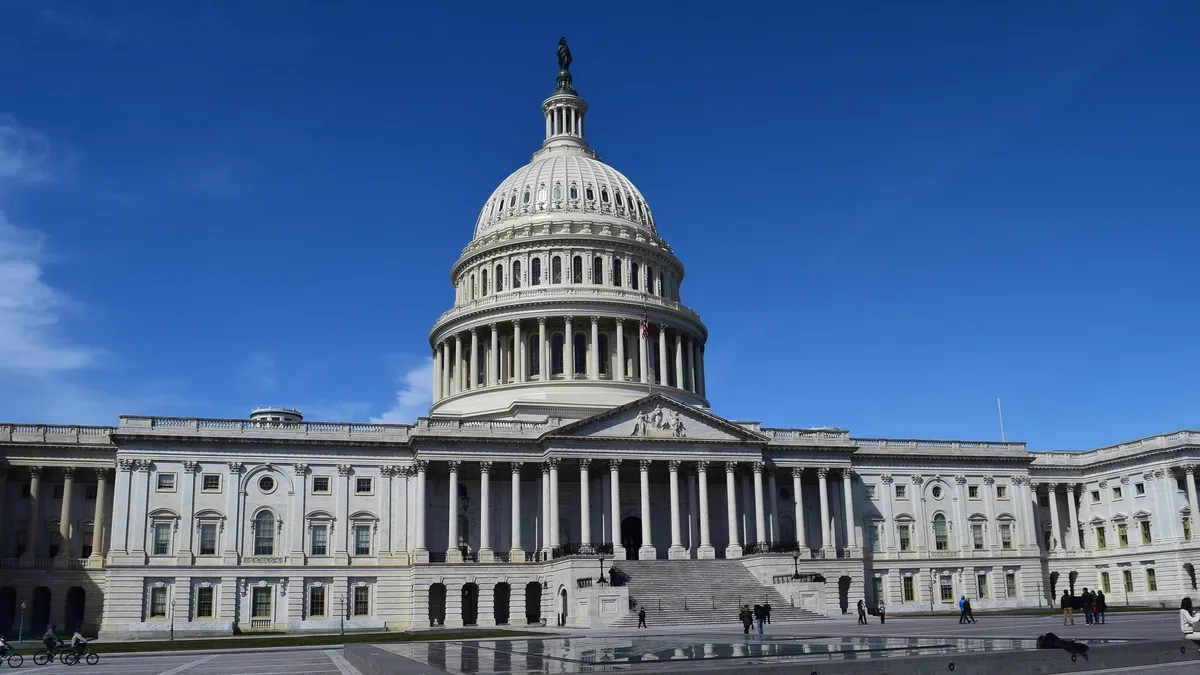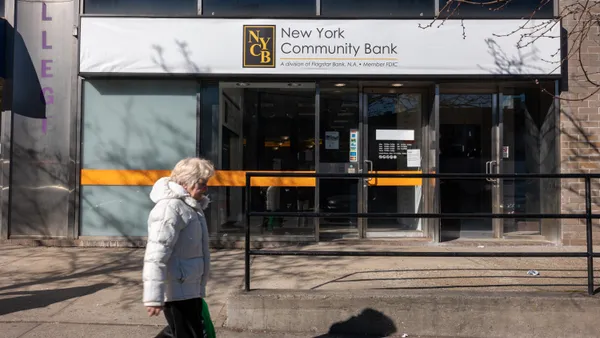Dive Brief:
-
A group of Republican senators introduced a bill that would go after big banks that refuse to serve firms with active federal contracts, such as those that do business with the Immigration Customs and Enforcement Agency (ICE).
-
The bill, which was introduced by Sen. Marco Rubio, R-FL, would amend the Federal Deposit Insurance Act to remove Federal Deposit Insurance Corp. (FDIC) insurance from banks with assets over $50 billion and refuse to serve federal contractors.
-
"Some of our nation's largest banks have decided to cater to the radical left's ‘woke' agenda by abusing their systemic influence in our economy to deprive law-abiding federal contractors of banking services critical to their business," Rubio said in a statement. "Banks have a right to deny funds to certain businesses, but they shouldn't enjoy taxpayer-provided guarantees if they are undermining the public policy of the United States."
Dive Insight:
The bill, which is co-sponsored by Senators Tom Cotton, R-AR, Marsha Blackburn, R-TN and Kevin Cramer, R-ND, addresses a trend that has drawn fire from GOP lawmakers, as banks increasingly make business decisions related to social issues.
As activity along the U.S.'s southern border continues to bring attention to immigrant detention centers and the banks that finance them, some financial institutions have made decisions to divest from the private prison industry.
Large banks such as Barclays, Bank of America, BNP Paribas, JPMorgan Chase, Wells Fargo and SunTrust (before its merger with BB&T to form Truist) announced plans to divest from the private prison industry last year.
The topic also came up during a House Financial Services Committee hearing in July on BB&T and SunTrust's merger.
Former Wisconsin Rep. Sean Duffy (R-WI) accused SunTrust of taking a social stance by distancing itself from the private-prison industry, telling then SunTrust Chairman and CEO William Rogers, "You should bank anyone who follows the law.”
Rubio’s bill, dubbed the Financial Defense of Industrial Contractors (FDIC) Act, aims to penalize banks for withholding service to federal contractors, a practice the senators referred to as “political discrimination.”
"By denying critical financial services to ICE contractors, big banks have hobbled ICE's efforts to protect Americans,” Cotton said in a statement. “These banks shouldn't receive public funding if they're putting the public at risk."
Banks that violate the FDIC Act would be subject to an FDIC board hearing and a transition phase of up to two years.
Republican lawmakers have also inserted language in another bill, the Secure and Fair Enforcement (SAFE) Banking Act, in an attempt to address the issue.
Several revisions were made to the bill, which would create protections for financial institutions that serve cannabis-related businesses, before it passed to the Senate, including one that addressed Operation Choke Point.
The Obama-era initiative investigated banks' ties to firearms dealers and payday lenders, industries believed to be linked to money laundering.
The Justice Department operation, which was heavily criticized by Republicans, lasted from 2013 to 2017.
The updated section of the bill states federal banking agencies "may not formally or informally request or order a depository institution to terminate a specific customer account or group of customer accounts or to otherwise restrict or discourage a depository institution from entering into or maintaining a banking relationship with a specific customer or group of customers" unless the agency has a valid reason.
Such a reason cannot be based solely on reputational risk, the update also states.
However, despite the revisions, Senate Banking Committee Chairman Mike Crapo, R-ID, said in December he would not support the bill, putting a dent in any hopes that the legislation could pass in the Republican-controlled Senate.












